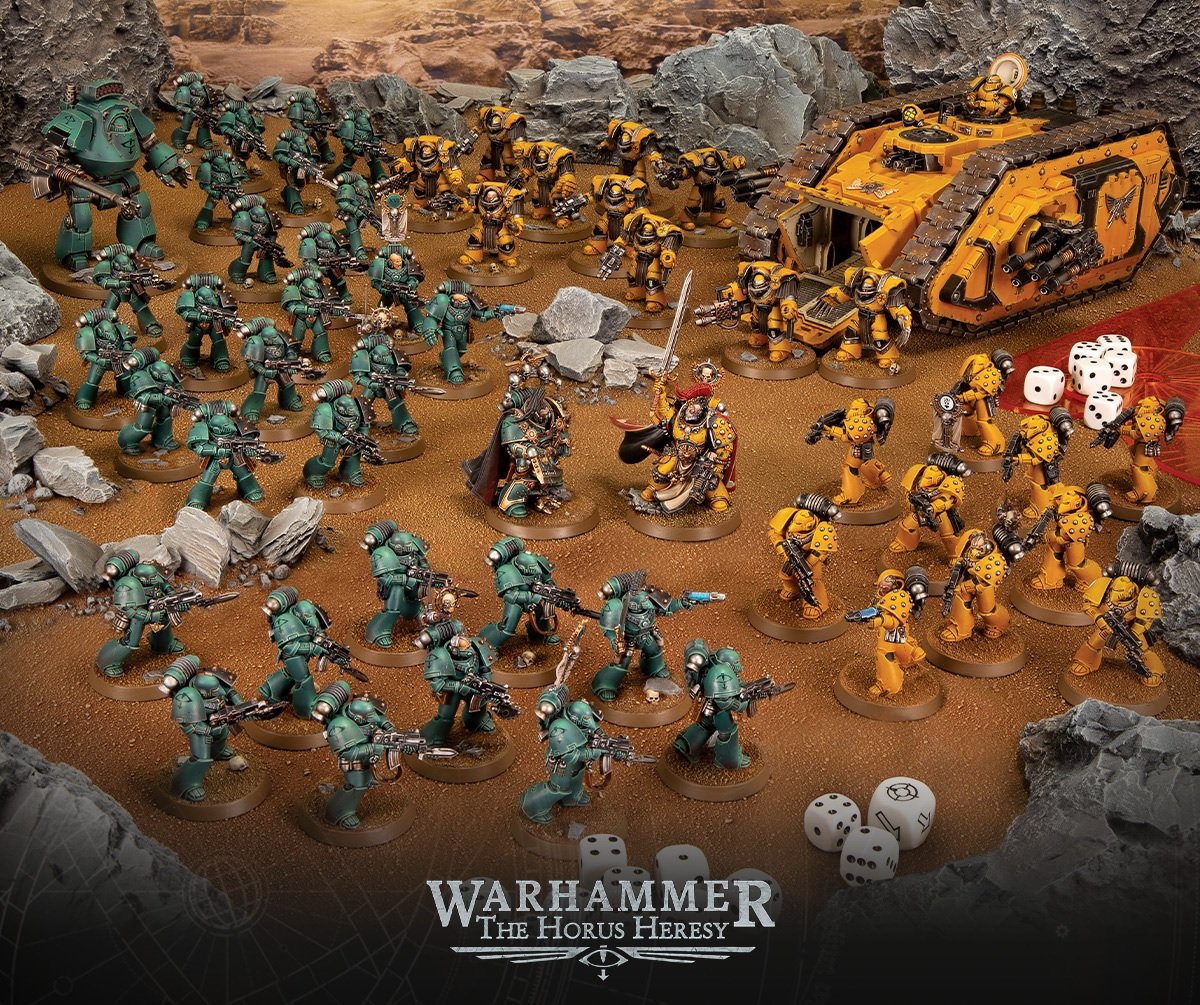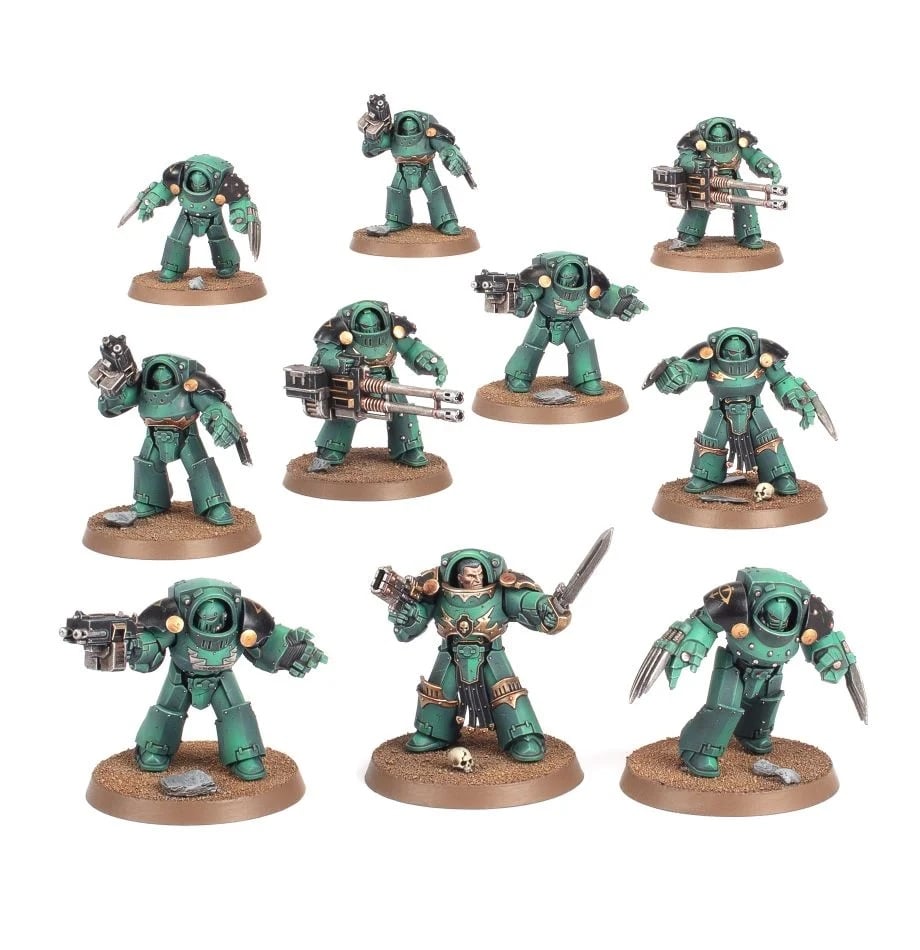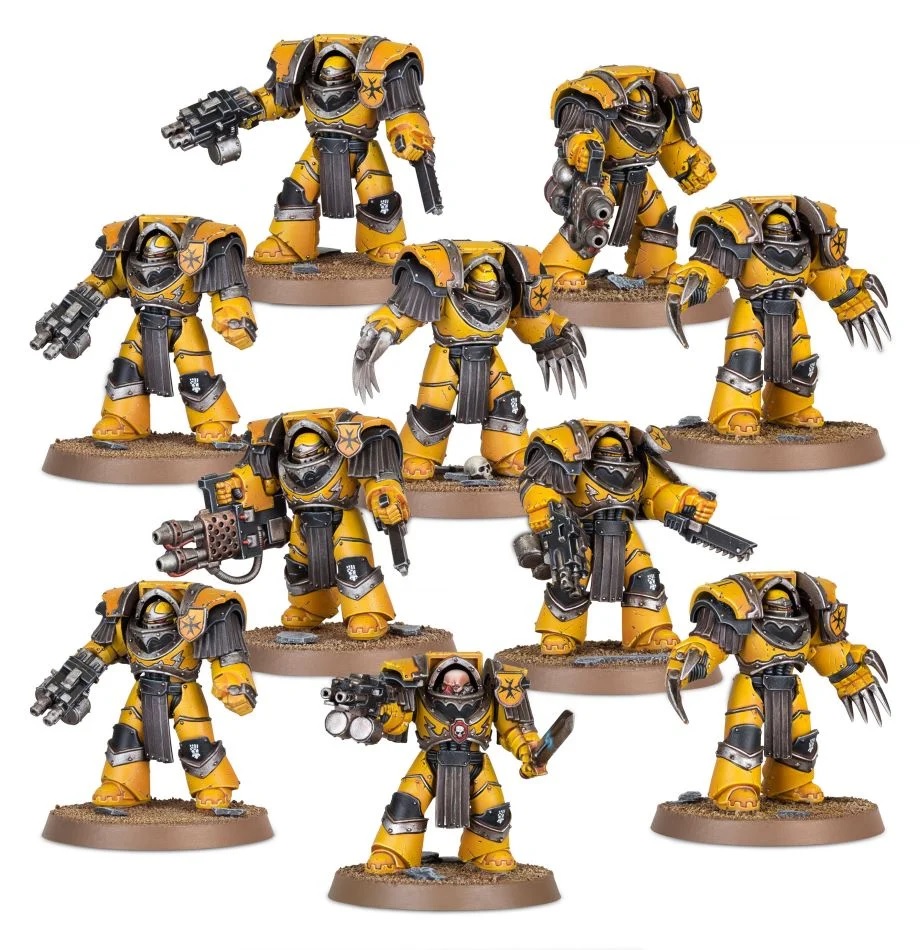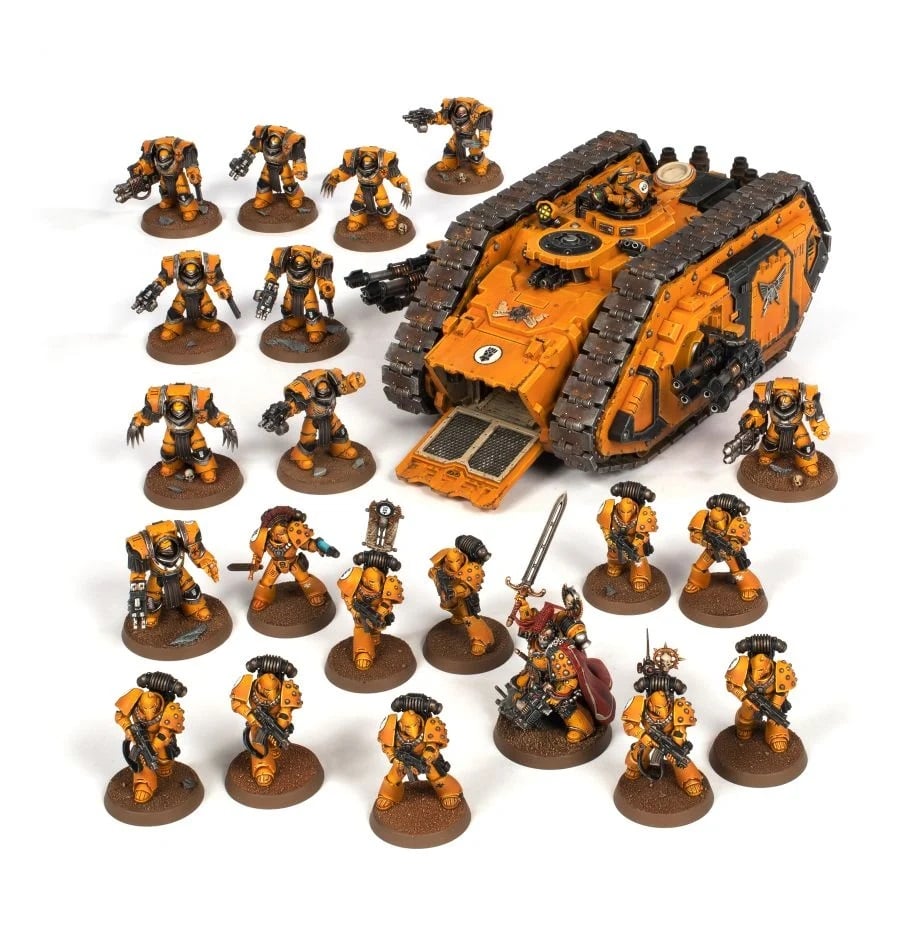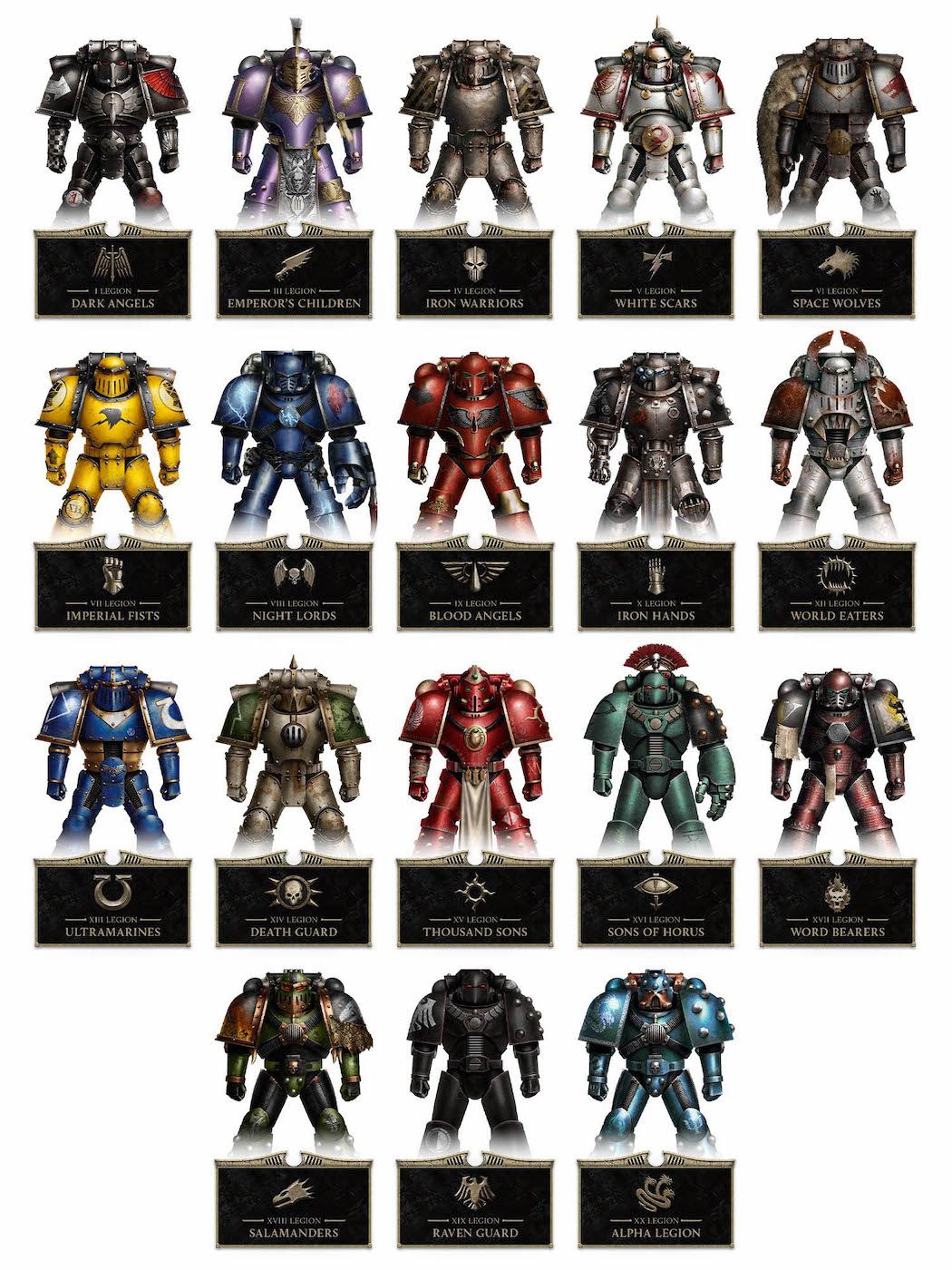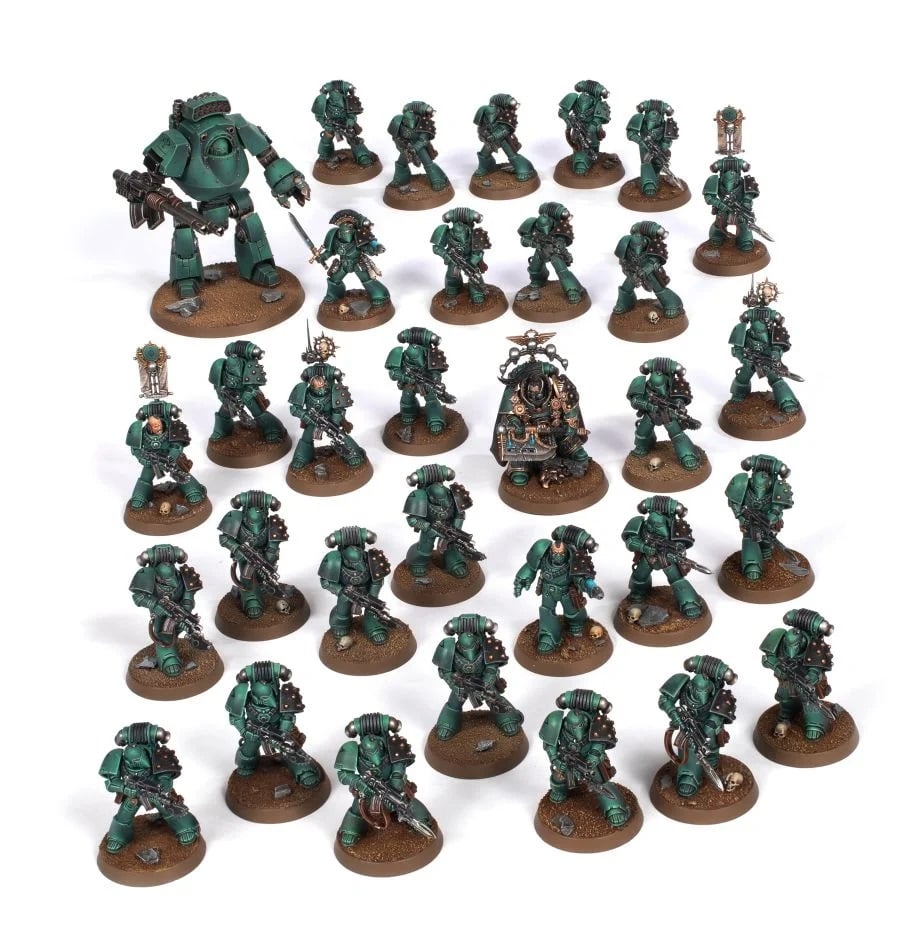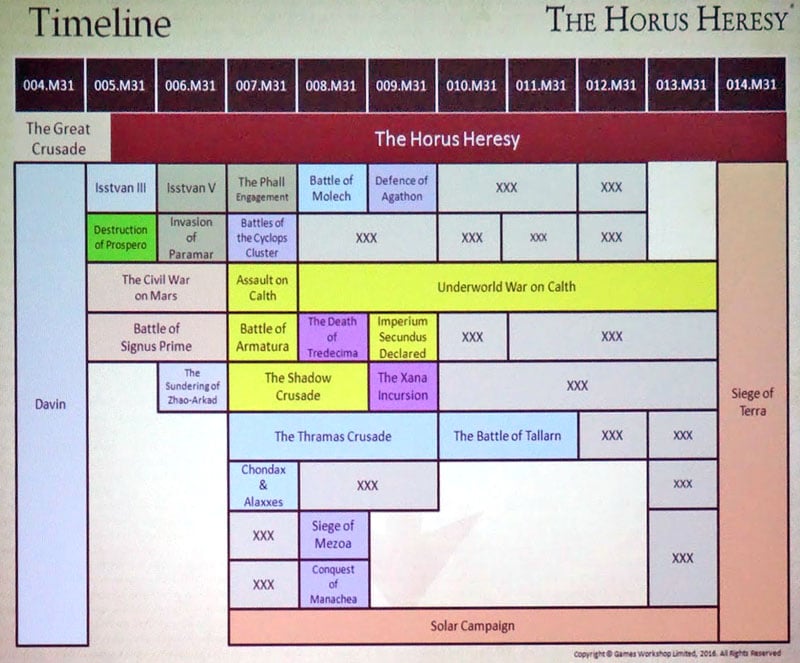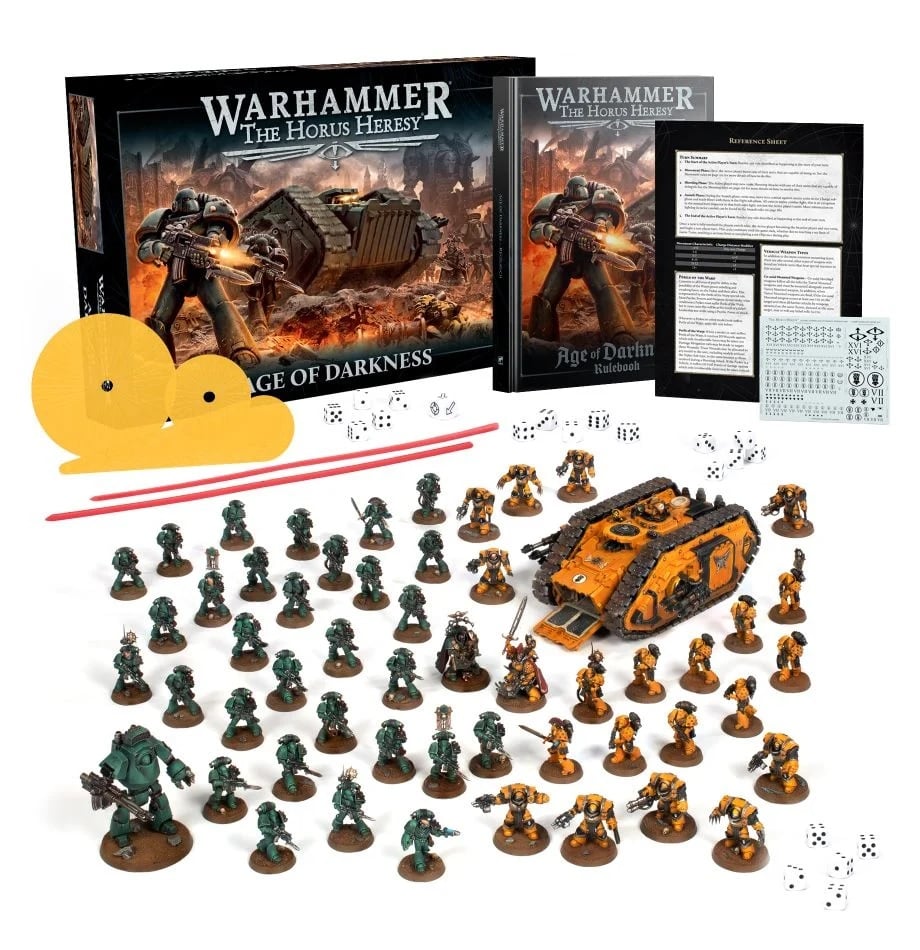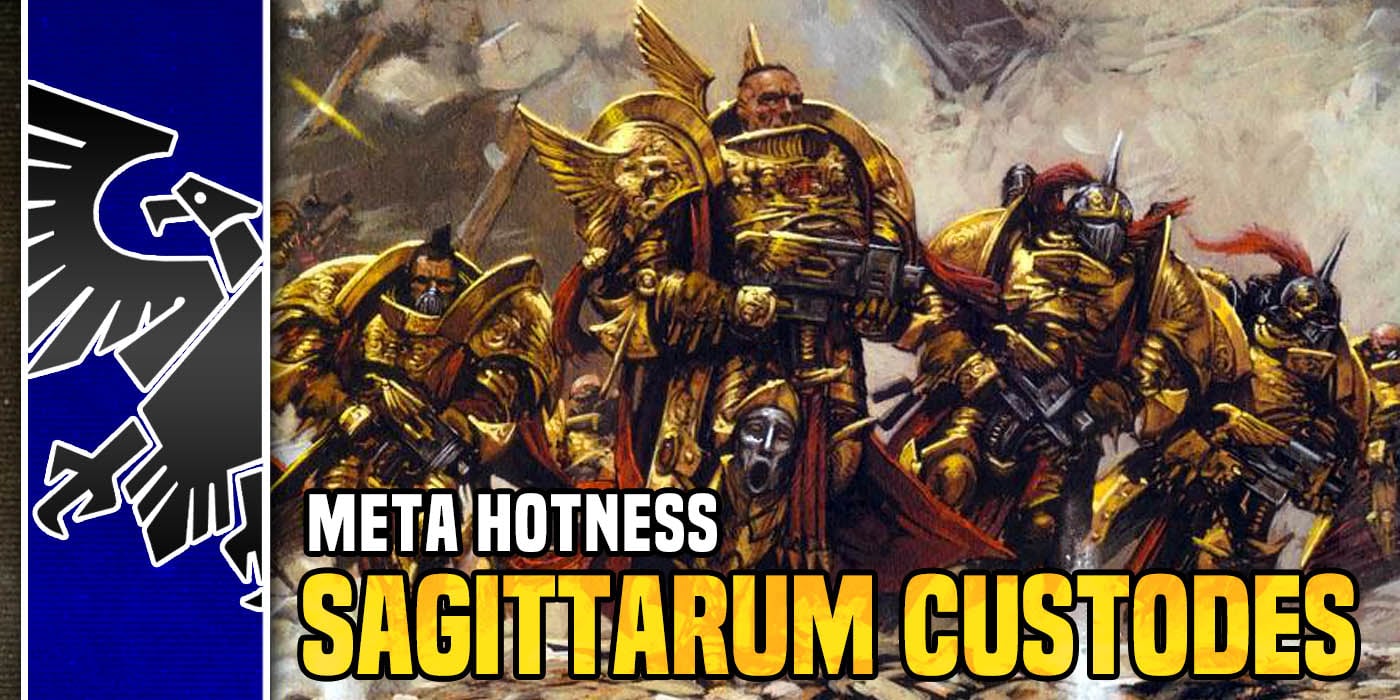Horus Heresy: Creating a Narrative Campaign in Warhammer 30K


Do you absolutely rock at Horus Heresy Trivia? Could you forge a narrative? Can you administer a community DMV style? If you answered yes to all of these consider hosting a narrative campaign!
This week I’ve say down with 2 friends from the local Austin, TX 30k community to talk about Narratives in the grimdark settings of Horus Heresy.
Monjoni is a QA Lead by day and lifelong gamer, Warhammer enthusiast and community leader by night. He’s run numerous successful campaigns, tournaments and narratives in Age of Sigmar, Warhammer 40k, Horus Heresy, Legend of the 5 Rings, Dragon Ball Super Card Game and dozens more. He’s even had a hand in developing lore, and books for table top games. There are few people I’ve met that have as deep an incite into what it takes to build a campaign, engage with the community and make fun and memorable experiences for those groups.
Jared is a DM at heart and those skills and experiences infuse into his games and campaigns. He’s run successful clubs, campaigns and narratives in a variety of TTRPGs, Warhammer 40k, Horus Heresy, Frost Grave, Star Grave, Dungeons and Dragons, Warhammer Fantasy Roleplay, Rogue Trader, Dark Heresy and Kill Team among many other niche titles and games.
What is a Narrative?
I think at the very heart of this article I wanted to explore the idea of what it means to play Horus Heresy in a Narrative sense. Often times Games Workshop alludes to forging a Narrative within their own core rulebooks but don’t necessarily layout how you can make that happen. So I wanted to put together an article or two on how you can “Forge the Narrative,” and string together a series of games to build a campaign.
Narrative campaigning can be daunting in Warhammer. There are very few intellectual properties that lend themselves as well to Narrative play as the universe of Horus Heresy, but the task can be daunting due of the size and scope of lore. Oftentimes you can enter the sandbox of Horus Heresy and get lost in the sheer amount of content.
At the very center of a Narrative is a story. Monjoni puts it best, “Stories have a beginning, a middle, and an end, and a narrative campaign should follow a similar structure.” As you build your campaign and start planning it, think about your story arch. As the storyteller put together a beginning that grips people and starts to drive conflict. In the middle of the Narrative, this is where the escalation happens. More points, bigger armies, more at stake, a wide scope. This is where the story expands the world, drags others into the conflict and characters and factions are established. Something should happen in here that will allow you to have a tipping point, i.e. the point of no return and that is where you should think about the end. How am I going to resolve the conflict? At this point the scope of the world needs to rapidly collapse in on itself. All the characters who are still around need to find themselves on a battlefield deciding the the conclusion. Your outcomes will be decided in a real way as these story arcs finish and your players can have their satisfying endings. Most of all you want to leave the conclusion to the players and the dice. You as a TO or GM can then interpret their efforts into a Narrative conclusion.
So onto our interview:
Ryan – “What makes 30k a compelling universe to do a narrative campaign in?”
Jared – “Unlike 40k or AoS or even the Old World, Heresy is a very focused narrative. It is about a huge war that spanned a long time, but that war was focused on these two sides figuring out what was what, who was who, and then duking it out. It helps to drive the setting home. It feels just better focused to me. Plus I really like the game more as a faster alternative to it’s cousin games.”
Monjoni – “To me, the virtue of the Horus Heresy is that there’s both a ton of lore to draw on for inspiration as well as a whole lot of unwritten background. The Five Hundred Worlds of Ultramar had the Shadow Crusade and Imperium Secundus, with tons of battles and named characters involved, and yet there’s only one black book and ~3 novels describing that time period. Even major systems, like Macragge, have very little focus time on them so you can do what you want pretty easily. Players can leave their mark and feel like their decisions matter, and that’s the important bit for me.”
-Courtesy of Games Workshop
Ryan – “If you’re starting a campaign for 10-15 people where do you start?”
Monjoni – “The first thing I think about is what is the story I want to tell, or more simply the experience I want to deliver. Some people want a slow grow campaign and don’t care much about the overall story, some people want to use narrative mechanics (a la Crusade or Path to Glory), some people are really into the lore and they want to explore that on the tabletop. Once I know the kind of angle I want to take, I then talk with the players and other experienced campaign folks about what to do and what would be neat.”
Subscribe to our newsletter!Get Tabletop, RPG & Pop Culture news delivered directly to your inbox.By subscribing you agree to our Terms of Use and Privacy Policy.
In our case Monjoni and Jared opted for a legion agnostic campaign with 2 factions, Heretic and Loyals, that took place in the Ultramar Sub-sector. The fact that they weren’t trying to tell a specific story from the Horus Heresy novels helped to attract anyone starting an army to the campaign and not make them feel like they had to build their new Age of Darkness boxes with a specific chapter in mind. I think this flexible framework existing helped attract players while also keeping the established motifs, themes and style of Horus Heresy.
Jared – “Running a campaign is a lot of work. Be sure you know what level of commitment you are giving and what you are expecting from the players. Get as much done before the campaign (missions, rules, etc) because once the campaign starts you are going to be juggling the week to week administration and may not have time to do that stuff. “
I think the comment from Jared really puts into perspective what to expect as an Organizer or Community Leader. Its a thankless job, that takes lots of time. As an Game Master or Organizer you have to be the most organized one there, ready with missions, ready to pair up opposing factions and fix problems on the fly on meetup days. Sometimes you get a game, sometimes you’re playing ringer, and sometimes you’re not even playing for your own faction. You have to be there early for setup and you’re always working with the FLGS or host to ensure you have access, to remind them of events, and to help fulfill the communities obligations to the shop.
Finally don’t expect any money or repayment, you’re generally on you own. Even if you’re charging people for the experience most of that money is probably going to be put toward the venue, prize support and terrain. Any TO will tell you that they’re ecstatic if their event breaks even. Organizers should want to tell a story or throw an event because they love the game, they love the communities. As an organizer you’re rarely going to get recognition, reward or much glory. As a GM/TO you are a purveyor of fun first.
Ryan – “Can you give a brief description of your campaign and what steps you did to drive a narrative?”
Monjoni – “The War in Waterloo was a campaign built to coincide with the release of Horus Heresy 2nd edition and provide an opportunity for players to grow their collections, get introduced to Heresy as a gaming experience, and play games that will impact future narrative campaigns. In order to drive the narrative, we created a map-based movement and control system, around a dozen custom missions, and had objectives that players could drive towards throughout the campaign.”
Jared – “We put out updated maps each week to show where the fleets were and also tried to release a paragraph or two on what was going on the in the campaign, setting the stage for each week.”
Advertisement
One of the best ways that Monjoni and Jared premiered their Narrative Campaign and drove hype for it was to develop a video that acted like a trailer for the campaign. This is probably going way above and beyond, but it was an excellent tool to get people interested and excited to participate.
-Courtesy of Monjoni Osso & AoD Productions
Ryan – “Both of you have some substantial DnD and RPG experience, did you draw on that experience to put together the campaign, if so in what ways? How did it come into play during the campaign?”
Monjoni – “Narrative play centers, fittingly enough, on a story. Stories have a beginning, a middle, and an end, and a narrative campaign should follow a similar structure. One of they things that I learned from Mike Brandt in a conversation with him last year, as I was pondering how best to do a Heresy Narrative Campaign, was to place as much of the narrative as possible in the missions on the tabletop. I’ve learned that things like briefings and lore dumps rarely make players feel like a narrative is happening, but missions, objectives, these are tangible things that can communicate a story in the course of a game of Warhammer. Narrative missions will be balanced around what makes an interesting story, or what provokes compelling decisions from the players above and beyond the Warhammer-usual of list building or objective play. The key for a good narrative mission is that both players should feel like they did something meaningful and worked towards objectives that they care about.”
Jared – “Stories are everything, as are the characters your stories are based around. Due to our changing escalation, the characters kind of got lost. Also the map made it far more a strategy campaign than a narrative campaign. The next narrative event I do will be 100% story and character based.”
Advertisement
For narrative Horus Heresy campaign, players need to control their own impulse to power game because the stories of Horus Heresy are vast, and many specifics are left out from the books,. The stories themselves are told from single perspectives or a units perspective in a grander battle; unit limitations and arms limitations aren’t often written into missions. Its important when you make lists for Narrative play that you focus on making sensible list decisions that depict your legion or force as to how they would behave in the lore…that is the intent.
Half of the fun for me in Horus Heresy narrative’s is building a legion that looks like a legion and plays like it reads in the lore. Would my legion be caught with 3 leviathans in small engagement? Doubtful. Is a Primarch truly going to come down planet side to crush a few stray squads of an opposing army? Their captains would probably be leery to agree so is the army I’m bringing something that makes sense for the legion and the setting? As an example, some Horus Heresy narrative events only allow for 1 of each special character for the entire event and its done as a sign up, first come, first serve.
My interpretation of this would be playing a game where the story is more important than the actual outcome. Both players are playing within the bounds of the game but maybe tailoring their army lists around a theme, an event that occurred in the lore or how they feel their army should operate.
Ryan – “Was this campaign based around big events in the 30k timeline or universe?”
Monjoni – “I use my (hilariously deep…) knowledge of the 30k timeline to inform and add texture to a campaign. For this, we wanted to start it just prior to the Betrayal at Calth and run it through the events of the Ruinstorm.”
For context, Monjoni is a true Horus Heresy lore subject matter expert (SME) to the point where at the most recent GW event in Chicago, he and the Goonhammer team absolutely dominated the trivia challenge getting all but 1 point. Pretty impressive in a room full of 30k enthusiasts.
Horus Heresy Timeline
Ryan – “Would you do another narrative on an big box edition release again? Do you think an escalation and narrative is to much?”
Monjoni – “I don’t think I would run a narrative and slow grow together again. I think they work at cross purposes, and it would’ve been better to focus on one or the other. In hindsight, I think a lot of players balked at the hobby requirements and that was hard to deal with over time.”
Monjoni and Jared’s campaign had a strong following initially but did have some attrition over time due to people having other time commitments as well as some people struggling to meet the hobby requirements. The requirements were that models be painted to a battle ready or tabletop standard with basing. I consider myself a pretty accomplished painter, though I’m not as fast as some and life did get in the way sometimes of being able to field a full force.
For context I was wanting to play Mechanicum and in hindsight that was probably not smart because the book released partway through the campaign, had delays and rules issues and or course I ended up not being able to make a playable army without buying and waiting on the mail for reinforcements. Alas I wasn’t able to participate fully, but for the games I was able to play it was great and the effort showed.
Final Thoughts:
I’ll be coming to you next time with the conclusion to our interview and more thoughts from the Narrative duo of Jared and Monjoni. In the mean time if you’ve never played in a Narrative think about putting together a small event for your local community as an alternative to your weekly competitive sessions and casual games. If you have access to any of the Forge World black books they have campaign missions and many can be adapted to the current edition or put together something yourself and tell a story that you want to tell!
Happy Age of Darkness Gaming!

